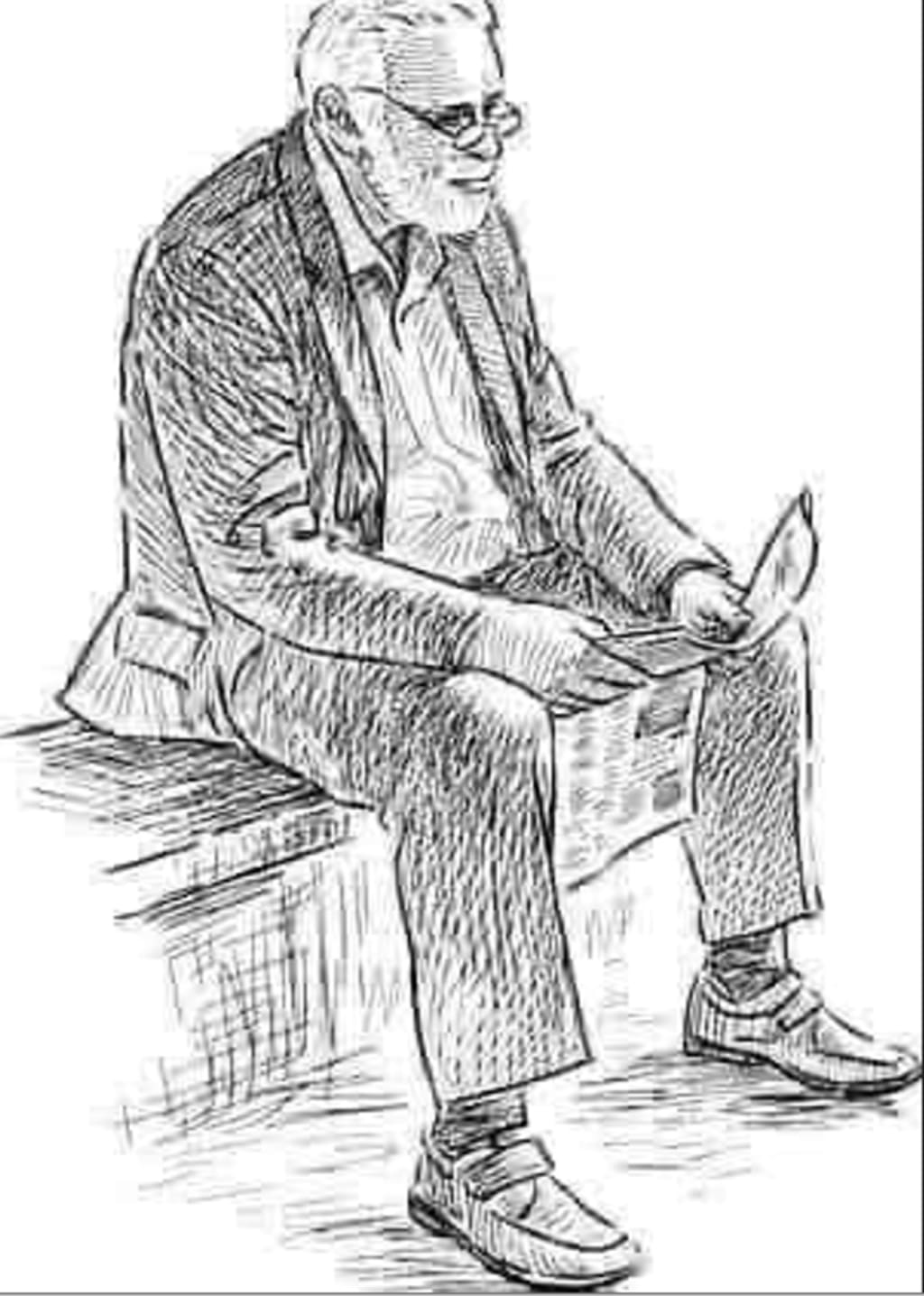An Old Man Meets A Young Man Who Asks: “Do You Remember Me?”
A Timeless Encounter: The Unforgettable Reunion of Generations

An old man meets a young man who asks:
“Do you remember me?”
And the old man says no. Then the young man tells him he was his student, And the teacher asks:
“What do you do, what do you do in life?”
The young man answers:
“Well, I became a teacher.”
“ah, how good, like me?” Asks the old man.
“Well, yes. In fact, I became a teacher because you inspired me to be like you.”
The old man, curious, asks the young man at what time he decided to become a teacher. And the young man tells him the following story:
“One day, a friend of mine, also a student, came in with a nice new watch, and I decided I wanted it.
I stole it, I took it out of his pocket.
Shortly after, my friend noticed the his watch was missing and immediately complained to our teacher, who was you.
Then you addressed the class saying, ‘This student's watch was stolen during classes today. Whoever stole it, please return it.’
I didn't give it back because I didn't want to.
You closed the door and told us all to stand up and form a circle.
You were going to search our pockets one by one until the watch was found.
However, you told us to close our eyes, because you would only look for his watch if we all had our eyes closed.
We did as instructed.
You went from pocket to pocket, and when you went through my pocket, you found the watch and took it. You kept searching everyone's pockets, and when you were done you said ‘open your eyes. We have the watch.’
You didn't tell on me and you never mentioned the episode. You never said who stole the watch either. That day you saved my dignity forever. It was the most shameful day of my life.
But this is also the day I decided not to become a thief, a bad person, etc. You never said anything, nor did you even scold me or take me aside to give me a moral lesson.
I received your message clearly.
Thanks to you, I understood what a real educator needs to do.
Do you remember this episode, professor?
The old professor answered, ‘Yes, I remember the situation with the stolen watch, which I was looking for in everyone’s pocket. I didn't remember you, because I also closed my eyes while looking.’
This is the essence of teaching:
If to correct you must humiliate; you don't know how to teach.”
The essence of teaching is rooted in the profound understanding that correction should never be accompanied by humiliation. Teaching is a noble art that requires empathy, compassion, and a deep commitment to the growth and development of learners. When educators resort to humiliation as a means of correction, they not only undermine the self-esteem of their students but also erode the trust and respect necessary for effective learning.
True teaching goes beyond simply imparting knowledge; it involves fostering a positive and supportive learning environment. The most effective teachers recognize that mistakes are a natural part of the learning process and view them as opportunities for growth. They approach corrections with sensitivity, understanding that their role is to guide and encourage students rather than belittle them.
Humiliation has no place in the realm of education. It diminishes students' confidence, and hinders their ability to take risks and participate actively in the learning process. Moreover, it creates an atmosphere of fear and negativity that can stifle creativity and intellectual curiosity. When students are humiliated, they become disengaged, losing their enthusiasm for learning and hindering their overall academic progress.
On the other hand, skilled teachers understand that correction can be delivered in a constructive and supportive manner. They provide feedback that focuses on specific areas of improvement, highlighting strengths and offering guidance for growth. They create an environment where students feel safe to make mistakes, ask questions, and actively participate in discussions. By fostering a culture of respect and understanding, teachers empower their students to take ownership of their learning journey and develop a lifelong love for knowledge.
In essence, the mark of a great teacher lies in their ability to correct without humiliation. They inspire and motivate their students through positive reinforcement, nurturing their potential and instilling in them a sense of confidence and self-worth. Effective teaching is a delicate balance between imparting knowledge, guiding students toward improvement, and fostering a supportive environment that nurtures their growth. When correction is delivered with kindness, respect, and empathy, it becomes a powerful tool for learning and personal development.
Thanks for reading
About the Creator
Jenny Endino
Hi, my name is Jenny.
Unveiling fascinating facts, unraveling gripping mysteries, delivering timely news, and diving into the depths of physiology. Prepare to be captivated by a world of knowledge that will leave you hungry for more.






Comments
There are no comments for this story
Be the first to respond and start the conversation.